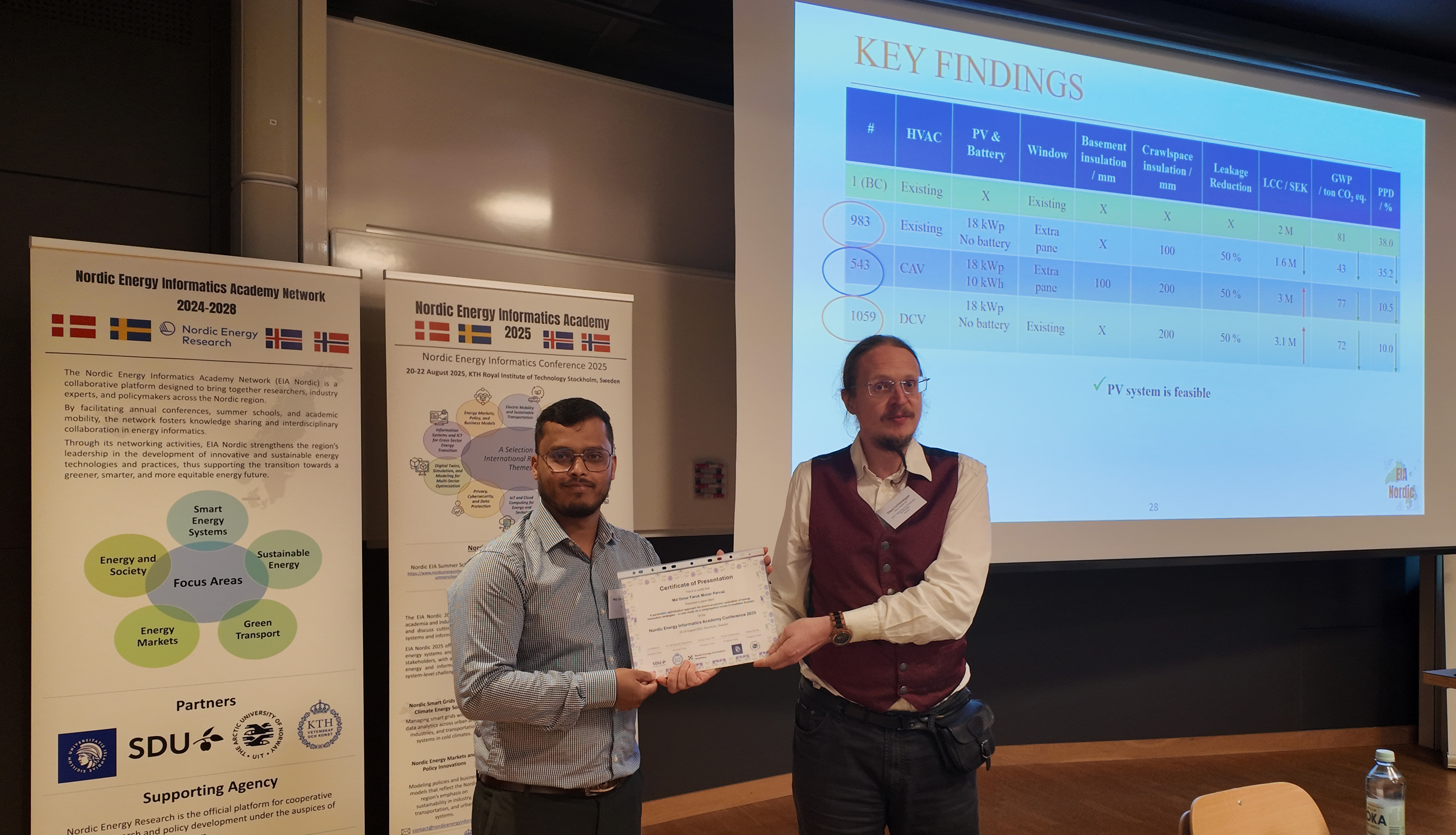Nordic energy informatics conference in retrospect

The Nordic Energy Informatics Academy Summer School and Conference 2025 (EIA Nordic 2025) was hosted by the Division of Sustainable Buildings, Department of Civil and Architectural Engineering, ABE/KTH during 18-22 August 2025. The events brought together researchers, innovators, and professionals across the Nordics, Europe, and beyond to explore how digitalization and informatics can accelerate the sustainable transformation of the energy sector. 24 PhD students and young researchers from Nordic Universities participated in the Summer School on Smart Buildings and Integrated Grids, held during Days 1-2.
Ivo Martinac, professor at the Department of Civil and Architectural Engineering, you are one of the conference organizers. What are your thoughts on the conference?
“Held over Day 3-5, the conference served as a vibrant forum for knowledge exchange, collaboration, and innovation at the intersection of energy systems and digital technologies. A total of sixty-five (65) submissions were received for EIA Nordic 2025. Each submission was evaluated through a rigorous single-blind peer-review process, with three expert reviewers assigned to each paper. Reviews were based on relevance, scientific quality, originality, and clarity. As a result, fifty-one (51) high-quality research papers were accepted and presented across eleven thematic sections, including 43 full papers and eight short papers. The strong alignment of submissions with the conference’s specific scope and the high standard of contributions from experienced research groups and ongoing collaborations within the Nordic energy informatics community contributed to this acceptance outcome. All accepted papers have been published in the Springer Lecture Notes in Computer Science (LNCS) series, ensuring global visibility and scientific impact.”
The conference opened with keynote speeches that set the tone for deep discussion on emerging energy informatics challenges and opportunities. The technical program included insightful presentations organized around the following focused themes:
• Energy Forecasting and Intelligent Control Systems
• District Heating, Thermal Systems, and Retrofit Strategies
• Building Simulation, Urban Energy, and Environmental Sensing
• Industrial Process Efficiency and Biomass Utilization
• Energy Informatics for Electric Vehicles and Mobility Systems
• Multi-Agent Systems and Local Market Coordination • Policy, Metrics, and Infrastructure Performance
• Smart Building Systems and Semantic Data Integration
• Prosumer Optimization and Energy Storage in Local Energy Communities • Grid-Oriented AI, Simulation, and Resilience
• Non-Intrusive Load Monitoring and Data Competitions
Each session provided a platform to present cutting-edge methods, innovative applications, and empirical case studies that address real-world energy challenges—from grid flexibility and urban energy sensing to semantic data modeling, battery storage, and AI-based resilience strategies.
In addition to the paper sessions, the conference featured a technical site visit to the KTH Live-in Lab, offering participants further opportunities to network and experience real-world energy innovation in action.
“EIA Nordic 2025 has demonstrated the value of interdisciplinary research and the power of digital tools to drive impactful solutions in energy systems. The conference fostered new ideas, strengthened collaborations, and inspired the community toward the continued advancement of energy informatics,” says Ivo Martinac, Chair of both events.
Read more about the conference www.nordicenergyinformatics.academy/2025eianordic
